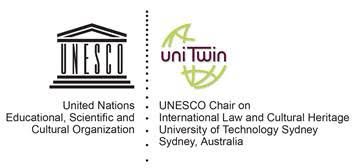Human Rights
The human rights dimension in World Heritage processes has been neglected from a multiplicity of angles, with serious implications for people living in and nearby World Heritage sites.
The 1972 UNESCO World Heritage Convection creates a provision for international and collective protection of natural and heritage with ‘outstanding universal value’. It is widely considered UNESCO’s flagship program, with 194 States Parties and over 1000 sites on its prestigious World Heritage List. Yet, the popularity of the program, propelled by the economic appeal of tourism and nationalistic aspirations, has increased the political stakes far beyond the Convention’s mandate of preservation and threatens both the implementation and the credibility of the World Heritage program.
The human rights dimension in World Heritage processes has been disregarded from a multiplicity of angles, affecting people living in informal settlements, those suffering forced evictions, refugees, ethic and non-ethnic communities living in or nearby sites on the World Heritage list, minorities and populations living under temporary, or extended, conflict situations. The upcoming 50th anniversary of the Convention offers a moment of reflection, and an occasion to provide tangible and pragmatic suggestions to remedy to decades-long omission of this aspect, widely recognized in international law and in other UN conventions.
The webinar series will be an opportunity to highlight and reflect on cases studies that are illustrative of human rights violations in and around World Heritage sites, but that are also exemplary of wider issues of heritage sites worldwide. The webinars will open up discussion and reflection to new voices involving stakeholders from academia, museums, NGOs and civil society to explore how the principles of human rights can be related to cultural and natural heritage, with a particular focus on World Heritage. We plan to assemble the different viewpoints into a white paper and provide recommendations that could guide future prescriptive requirements related to human rights in the policy and operational documents of the World Heritage Convention.
















Advocates from citizens movements protecting the Sundarbans of Bangladesh and the Lamu region of Kenya, as well as advocates to UN Human Rights systems, will present case studies and recommendations.
How citizens movements and civil society engagement with the UN Human Rights bodies can inform World Heritage systems.
ABSTRACT
Advocates from citizens movements to protect the Sundarbans of Bangladesh and the Lamu region of Kenya, as well as advocates to UN Human Rights systems, will present case studies and recommendations on how the World Heritage Committee, Advisory Bodies, Secretariat, and State Parties can better protect the human right to a healthy environment in and around natural and cultural World Heritage sites.
MODERATOR
Jessica Lawrence - Staff Scientist, Earthjustice
SPEAKERS
Sharif Jamil and Sajed Kamal - National Committee for Saving the Sundarbans, Bangladesh
Mohamed Athman and Khadija Shekuwe - Save Lamu, Kenya
Yves Lador - permanent representative of Earthjustice to the United Nations in Geneva